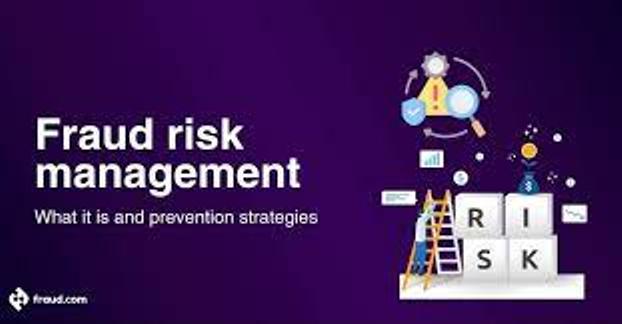
Introduction
Fraud risk management is a crucial aspect of a company’s overall risk management strategy. It involves identifying, assessing, monitoring, and mitigating risks related to fraudulent activities. Effective fraud risk management helps protect a company’s assets, reputation, and ensures regulatory compliance. As fraud schemes become increasingly sophisticated, companies must implement robust strategies to manage and mitigate these risks.
Concept and Importance of Fraud Risk Management
Fraud risk refers to the potential for losses due to fraudulent activities, including financial statement fraud, asset misappropriation, and corruption. Fraud can originate from internal sources (employees) or external sources (vendors, customers, cybercriminals). Effective fraud risk management is vital for maintaining financial integrity, operational efficiency, and stakeholder trust.
Key Components of Fraud Risk Management
- Risk Identification: Recognizing potential fraud risks through audits, whistleblower hotlines, data analytics, and employee feedback. This involves understanding the various types of fraud that could affect the company.
- Risk Assessment: Evaluating the likelihood and impact of identified fraud risks. This includes analyzing historical data, industry trends, and potential vulnerabilities in internal controls.
- Risk Prevention: Implementing measures to prevent fraud, such as internal controls, segregation of duties, employee training, and ethical guidelines. This aims to reduce opportunities and incentives for fraudulent behavior.
- Risk Detection: Establishing mechanisms to detect fraud, including continuous monitoring, data analytics, and fraud detection software. Early detection is crucial for minimizing losses.
- Risk Response: Developing and implementing a response plan for when fraud is detected. This includes investigation procedures, disciplinary actions, and communication strategies.
- Risk Monitoring and Reporting: Continuously monitoring fraud risk indicators and control effectiveness. Regular reporting ensures transparency and accountability in fraud risk management efforts.
Importance of Managing Fraud Risk
- Financial Stability: Preventing financial losses due to fraud.
- Reputational Management: Protecting the company’s reputation and maintaining stakeholder trust.
- Regulatory Compliance: Ensuring compliance with legal and regulatory requirements to avoid fines and penalties.
- Operational Efficiency: Maintaining smooth operations by preventing disruptions caused by fraudulent activities.
- Strategic Success: Supporting the achievement of strategic objectives by mitigating potential fraud-related setbacks.
Real-Life Scenario: Fraud Incident at GlobalTech Solutions
Background
GlobalTech Solutions, a multinational technology company, experienced a significant fraud incident in 2022. An internal audit revealed that a senior manager in the procurement department had been embezzling funds and accepting kickbacks from vendors in exchange for favorable contracts.
Incident Description
- Risk Identification: GlobalTech’s internal audit team identified unusual financial discrepancies and inconsistencies in vendor contracts. However, previous audits had not flagged these issues due to inadequate risk identification processes.
- Risk Assessment: The initial risk assessment failed to identify procurement fraud as a significant threat. The company’s focus was primarily on external fraud risks, neglecting internal vulnerabilities.
- Risk Prevention: GlobalTech lacked robust internal controls in the procurement process. There was minimal segregation of duties, allowing the senior manager to manipulate records and approve fraudulent transactions without oversight.
- Risk Detection: The absence of continuous monitoring and data analytics tools delayed the detection of fraudulent activities. The fraud was only discovered during a routine audit, by which time significant financial damage had occurred.
- Risk Response: Upon discovering the fraud, GlobalTech launched a thorough investigation. The senior manager was terminated, and legal actions were pursued. The company also communicated the incident to stakeholders and regulatory authorities.
- Risk Monitoring and Reporting: Post-incident, GlobalTech implemented enhanced monitoring systems and established regular reporting mechanisms to prevent future occurrences.
Consequences
The fraud incident had severe consequences for GlobalTech Solutions, including:
- Financial Losses: The company incurred substantial losses due to embezzled funds and legal costs.
- Reputational Damage: The incident damaged GlobalTech’s reputation, leading to a loss of customer and investor confidence.
- Operational Disruptions: The investigation and subsequent process overhaul caused temporary disruptions in operations.
Post-Incident Response and Improvements
Following the fraud incident, GlobalTech took several steps to strengthen its fraud risk management framework:
- Enhanced Internal Controls: The company implemented stricter internal controls, including segregation of duties, approval hierarchies, and regular audits.
- Comprehensive Risk Assessment: GlobalTech conducted a thorough risk assessment to identify and prioritize fraud risks across all departments.
- Employee Training and Ethical Guidelines: The company introduced mandatory training programs on fraud awareness and established a code of conduct outlining ethical expectations.
- Advanced Fraud Detection Tools: GlobalTech invested in data analytics and fraud detection software to identify suspicious activities in real time.
- Robust Response Plan: The company developed a detailed fraud response plan with clear procedures for investigation, disciplinary actions, and communication.
Summary
The fraud incident at GlobalTech Solutions highlights the critical importance of effective fraud risk management. By identifying and addressing fraud risks proactively, companies can protect their assets, maintain stakeholder trust, and ensure long-term success.
Lessons Learned
- Conduct Thorough Risk Identification and Assessment: Regularly review and update risk assessments to reflect potential fraud risks and vulnerabilities.
- Implement Robust Internal Controls: Establish strong internal controls, including segregation of duties and approval hierarchies, to prevent fraudulent activities.
- Enhance Fraud Detection Mechanisms: Utilize data analytics and continuous monitoring tools to detect fraud early.
- Develop a Comprehensive Response Plan: Create and maintain a detailed fraud response plan with clear procedures for investigation and communication.
- Foster a Culture of Integrity: Promote ethical behavior through training programs and a strong code of conduct.
By understanding and implementing effective fraud risk management practices, companies can better navigate the complexities of today’s business environment and protect themselves against potential fraud-related risks.
For more details and structured learning, please explore our Fraud Risk Management Course.


